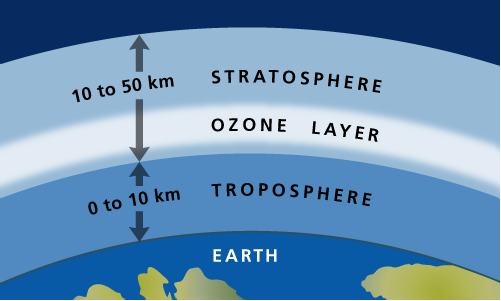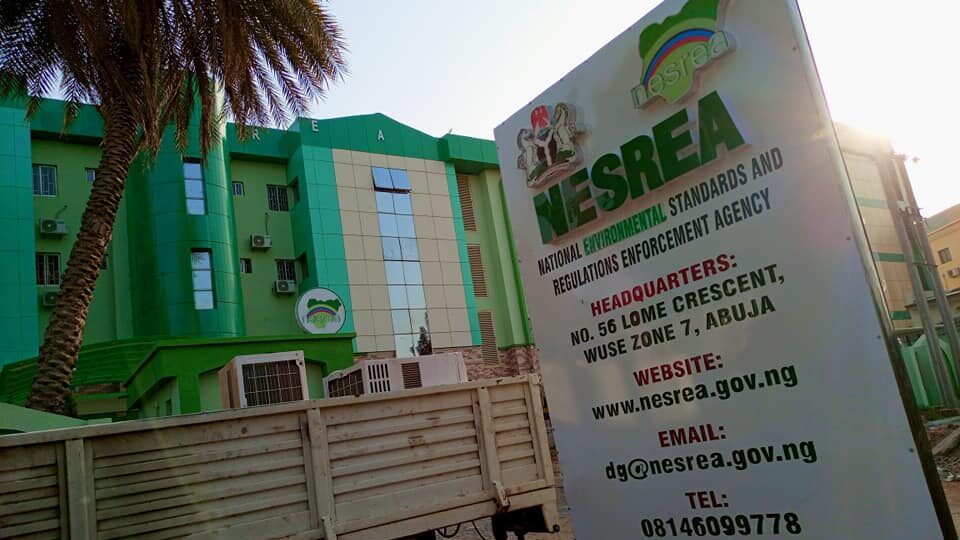The Montreal Protocol’s Legacy and Its Importance for Nigeria’s Climate Future
- September 16, 2024
- Posted by: Hub Admin
- Categories: Climatic Justice, Environmental Protection, Latest News & Events

By Pamela Udeji
Referred to as one of the most successful environmental agreements in history, the Montreal Protocol is to date the only UN treaty ever that has been ratified by every country on Earth. Adopted on 15 September 1987, the Montreal Protocol was designed to phase out the production and consumption of substances that deplete the ozone layer such as chlorofluorocarbons (CFCs). These chemicals were primarily responsible for the depletion of the ozone layer, which shields the Earth from harmful ultraviolet (UV) radiation. This ozone layer depletion contributes to increased risks of skin cancer, and eye cataracts, and has adverse impacts on ecosystems.
 Through international cooperation, the Protocol has led to the near-complete phase-out of CFCs and other ozone-depleting substances (ODS). Over the years, this has shown how global collaboration can lead to tangible success in environmental protection. The ozone layer is now on a path to recovery, with scientists predicting its restoration to pre-1980 levels by the middle of this century.
Through international cooperation, the Protocol has led to the near-complete phase-out of CFCs and other ozone-depleting substances (ODS). Over the years, this has shown how global collaboration can lead to tangible success in environmental protection. The ozone layer is now on a path to recovery, with scientists predicting its restoration to pre-1980 levels by the middle of this century.
Additionally, the Kigali Amendment to the Protocol, adopted in 2016, focuses on the reduction of hydrofluorocarbons (HFCs) which, while ozone-friendly, are powerful greenhouse gases. This amendment is expected to prevent up to 0.5°C of global warming by the end of the century.
The Montreal Protocol holds significance for Nigeria, especially as a country already experiencing the devastating impacts of climate change, such as increased heat waves, floods, and desertification. Northern Nigeria for instance, faces intense heat and drought, exacerbated by rising global temperatures. If not addressed, this could affect agricultural productivity, food security, and livelihoods.
The Montreal Protocol’s success in reducing greenhouse gases (GHGs) offers a vital opportunity to slow down these impacts as the restoration of the ozone layer has a direct influence on mitigating some of these climate effects, especially extreme weather conditions.
 Nigeria has been an active participant in implementing the Protocol’s provisions, especially through its National Ozone Office, which focuses on the phasing out of ODS. The National Environmental Standards and Regulations Enforcement Agency (NESREA) has played a critical role in phasing out ODS in sectors like manufacturing and refrigeration. However, there are still challenges especially in enforcing regulations and ensuring a smooth transition to sustainable and eco-friendly alternatives.
Nigeria has been an active participant in implementing the Protocol’s provisions, especially through its National Ozone Office, which focuses on the phasing out of ODS. The National Environmental Standards and Regulations Enforcement Agency (NESREA) has played a critical role in phasing out ODS in sectors like manufacturing and refrigeration. However, there are still challenges especially in enforcing regulations and ensuring a smooth transition to sustainable and eco-friendly alternatives.
The Nigerian government can contribute to ongoing efforts by facilitating a transition to energy-efficient appliances and equipment that are free of ODS, adopting practices that reduce our carbon footprint, such as clean cooking methods and afforestation, promoting policies that incentivize the use of alternatives to ODS, and creating public awareness on the importance of preserving the ozone layer.
As the global community celebrates another year of global cooperation and global ozone layer protection, we must not forget that although the ozone layer may be healing, the work of preserving our planet is still far from over. We must continually uphold our commitment to protecting the Earth’s atmosphere, recognising that the protection of the ozone layer is inseparably connected to the preservation of life on Earth.
References:
UN Environment Programme (2023). Ozone layer recovery is on track, helping avoid global warming by 0.5°C https://www.unep.org/news-and-stories/press-release/ozone-layer-recovery-track-helping-avoid-global-warming-05degc
United States Environmental Protection Agency (2024). Ozone Layer Protection https://www.epa.gov/ozone-layer-protection/recent-international-developments-under-montreal-protocol
NESREA (2022). Ozone Layer Protection https://www.nesrea.gov.ng/wp-content/uploads/2023/08/Ozone-Layer-Protection-2022.pdf
